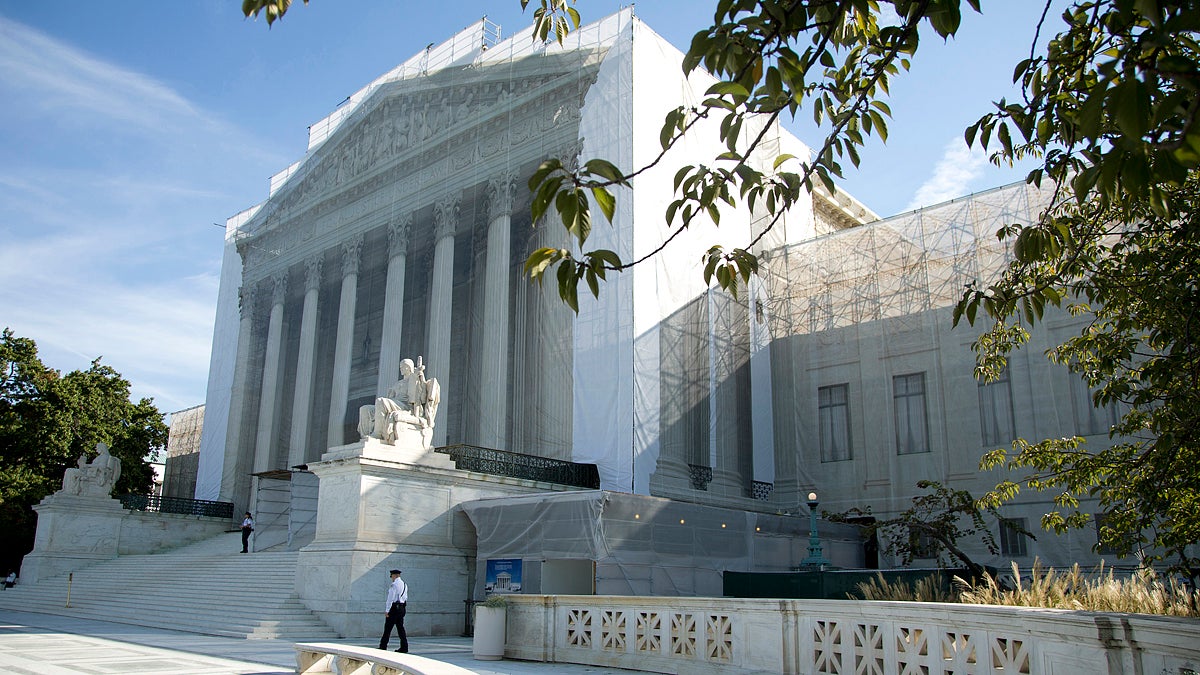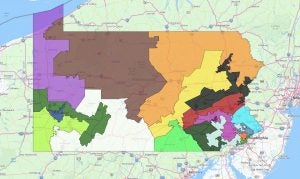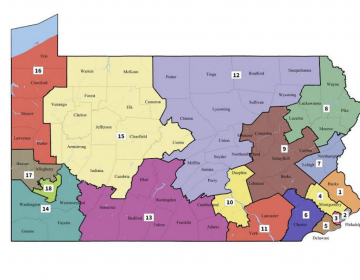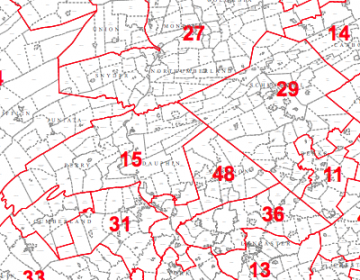Supreme Court keeps revised Pa. congressional map in place
Court rulings boost Democrats' chances of retaking Congress.

The U.S. Supreme Court (AP Photo/Carolyn Kaster, File)
Updated: 9:30pm
Within hours of one another on Monday afternoon, the U.S. Supreme Court and a lower federal district court rejected Republican appeals against the Pennsylvania Supreme Court’s decision to redraw the state’s congressional map.
That leaves the state GOP with very few avenues to fight the new map before this year’s midterm elections, with primaries scheduled for May.
In January, the majority-Democratic Pa. Supreme Court declared the state’s congressional district lines unconstitutionally gerrymandered to favor Republicans, who controlled the mapmaking process in 2011.
The court ultimately redrew the map with the help of an independent expert from Stanford University. The court-drawn map made Democrats significantly more competitive.
Republicans were—and still are—outraged.
Their two federal challenges were slightly different, but both hinged on the argument that the justices didn’t give lawmakers enough time to fix the map themselves, concluding the court’s decision violated the U.S. Constitution’s Elections Clause, which gives state legislatures the authority to decide how congressional redistricting happens.
But after several weeks of deliberation, both higher courts rejected those arguments.
The U.S. Supreme Court denied the appeal without elaboration, and filed no dissents.
The federal judge panel in the middle district said the two GOP senators and eight congressmen who filed suit don’t have standing, because they can’t speak for the whole General Assembly.
“The Plaintiffs invite us to opine on the appropriate balance of power between the Commonwealth’s legislature and judiciary in redistricting matters, and then to pass judgment on the propriety of the Pennsylvania Supreme Court’s actions under the United States Constitution,” they wrote. “These are things that, on the present record, we cannot do.”
Despite their displeasure with the ruling, House GOP leaders appear to be backing off, saying they’re “prepared to move on to other issues of importance to the people of Pennsylvania.”
Senate leaders seem more ambivalent.
They noted, the lower federal court dismissed the case because they decided Republicans didn’t have standing to challenge it—not necessarily because the facts of the case demanded it.
“We still believe these issues in this case are vital constitutional questions that deserve to be heard, including the PA Supreme Court taking on the role of creating legislation,” they wrote in a statement. “The state court’s decision to draw maps takes us down a path for the creation of another legislative body in Pennsylvania.”
Asked if they have any further plan to challenge the new map, the caucus declined to comment.
Monday’s action makes it highly likely that this year’s congressional elections in Pennsylvania will be conducted under district lines widely viewed as more favorable to Democrats than the 2011 map.
The previous map was drafted to aid Republican candidates and proved to be a campaign winner for them, leading the GOP to a 13-5 edge in the state’s congressional delegation for all three elections in which it was used.
Democrats need to pick up 24 seats to take control of the U.S. House of Representatives, 23 if Conor Lamb wins in Pennsylvania’s 18th district.
Democratic Gov. Tom Wolf called the federal judges’ ruling the right decision and said it will let the state move ahead with a fair map.
A group of 18 Democratic voters sued in state court last year to challenge the 2011 map, a case the state Supreme Court put on a fast track before throwing out the former district lines.
All five Democrats on the state Supreme Court said the map violated the state constitution, but one of the Democrats joined both Republicans in objecting to the majority’s determination to enact a new map for this year’s races.
More than 40 candidates had filed petition paperwork by mid-day Monday, according to state elections bureau data. The deadline to submit at least 1,000 voter signatures to get on the primary ballot is Tuesday.
WHYY is your source for fact-based, in-depth journalism and information. As a nonprofit organization, we rely on financial support from readers like you. Please give today.






